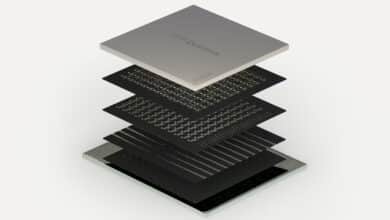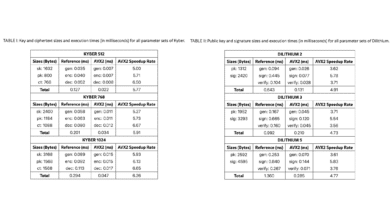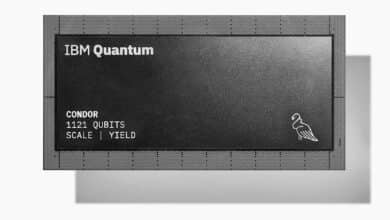Princeton Builds Qubit 3× Longer-Lived (1 ms Coherence)

6 Nov 2025 – A team at Princeton University has achieved a major leap in quantum hardware: a superconducting qubit that retains its quantum state for over 1 millisecond – roughly three times longer than the previous record. This coherence time of 1 ms, reported in Nature on November 5, marks the largest single improvement in qubit lifetime in over a decade. Longer-lived qubits directly translate to fewer errors, which is crucial for building practical quantum computers.
The breakthrough came from materials innovation. Most superconducting qubits (transmons) are made with aluminum circuits on sapphire substrates. The Princeton team instead used tantalum metal on a high-purity silicon substrate. Tantalum has far fewer microscopic defects on its surfaces compared to aluminum, and those defects (tiny two-level fluctuators) are a primary cause of qubit decoherence. By switching to tantalum-on-silicon and perfecting the fabrication, the researchers dramatically reduced energy loss in the qubit circuit.
The new qubit design is fully compatible with industry-standard transmons used by companies like Google and IBM – it’s essentially a drop-in replacement that is just made of different materials. Princeton’s tests showed that if you took Google’s latest superconducting processor (for instance, the 53-qubit “Weber” or 72-qubit “Sycamore” chips) and simply swapped its qubits for Princeton’s tantalum ones, the processor’s error rates would shrink drastically. Andrew Houck, the Princeton engineering dean leading the project, said using these qubits could let a quantum processor “work 1,000 times better” – because errors would occur far less frequently. And as you scale up the number of qubits, the reliability gains multiply even more.
The implications are huge. Current quantum prototypes suffer from qubits “not lasting long enough” to do deep computations. Error correction schemes require many physical qubits to form one logical qubit, largely because physical qubits lose information so quickly. A 3× coherence boost means fewer qubits and cycles would be needed for error correction, potentially reducing the overhead by orders of magnitude. Michel Devoret – a Yale professor and Google scientist who co-funded the work – noted that extending qubit lifetimes had been a “graveyard of ideas” for many physicists, as materials limits were hard to overcome. Princeton’s success in breaking that barrier by “thinking outside the box” with tantalum paid off where many attempts failed.
Notably, Devoret himself was awarded the 2025 Nobel Prize in Physics for his contributions to superconducting qubits (shared with John Clarke and John Martinis). This Princeton advance builds directly on the groundwork he and others laid. It shows that with clever engineering, today’s qubits can be vastly improved without needing exotic new paradigms. The qubit was demonstrated on a fully functional chip to validate that the long coherence translates to low error rates in real operations. Princeton’s Nathalie de Leon, a co-PI, emphasized that tantalum qubits are not only higher-performing but “also easier to mass-produce,” since they’re built on silicon wafers with processes familiar to the semiconductor industry.
In summary, the Princeton 1 ms qubit is a major stride toward making quantum computers reliable and scalable. It directly tackles the critique that “qubits just don’t last long enough” for useful work. With companies now able to incorporate these designs, we may see next-generation quantum processors featuring millisecond-range coherence – a development that could speed up progress toward error-corrected, large-scale machines by years. As Houck put it, “This advance brings quantum computing out of the realm of merely possible and into the realm of practical”, raising hopes that by later this decade we might have quantum computers solving meaningful problems.
Quantum Upside & Quantum Risk - Handled
My company - Applied Quantum - helps governments, enterprises, and investors prepare for both the upside and the risk of quantum technologies. We deliver concise board and investor briefings; demystify quantum computing, sensing, and communications; craft national and corporate strategies to capture advantage; and turn plans into delivery. We help you mitigate the quantum risk by executing crypto‑inventory, crypto‑agility implementation, PQC migration, and broader defenses against the quantum threat. We run vendor due diligence, proof‑of‑value pilots, standards and policy alignment, workforce training, and procurement support, then oversee implementation across your organization. Contact me if you want help.



